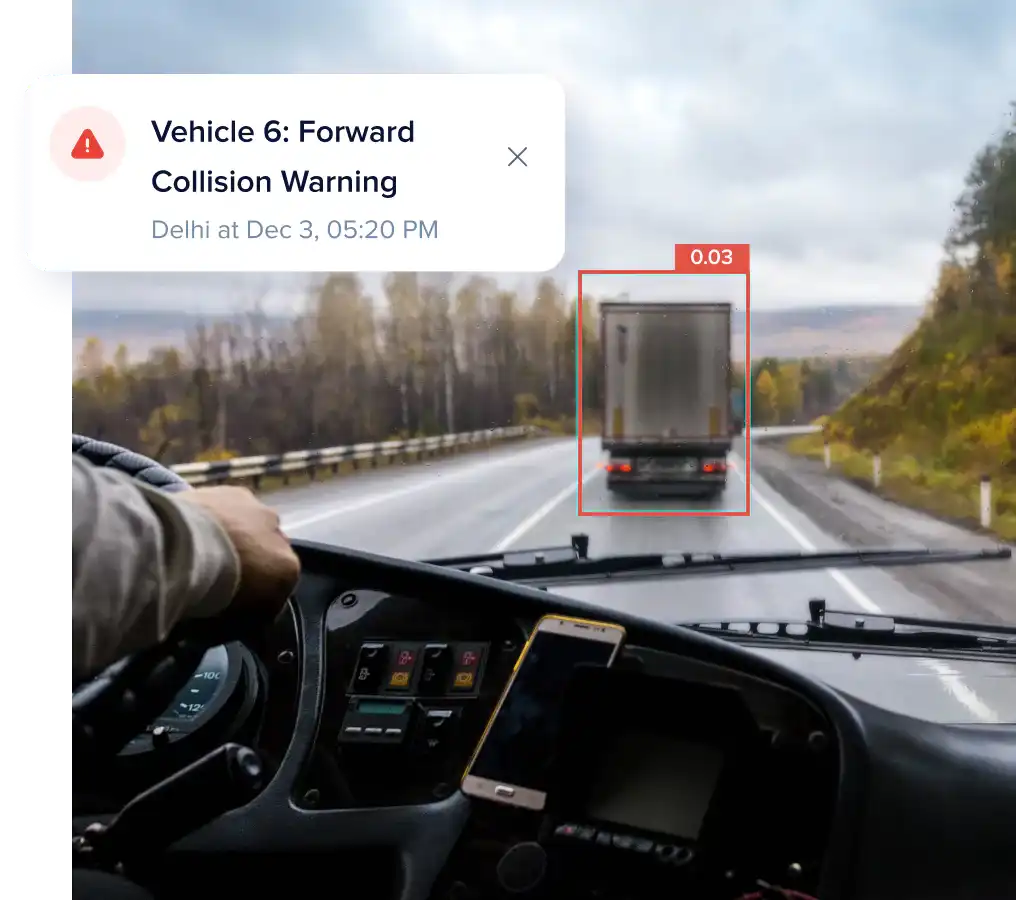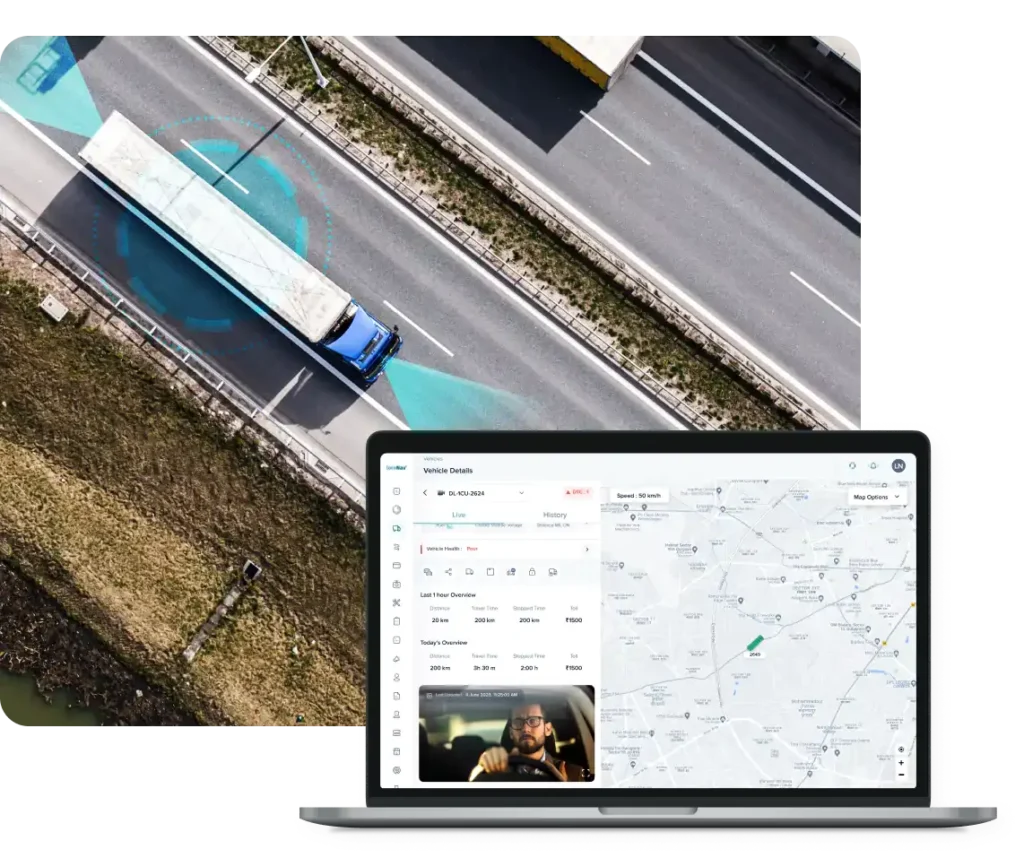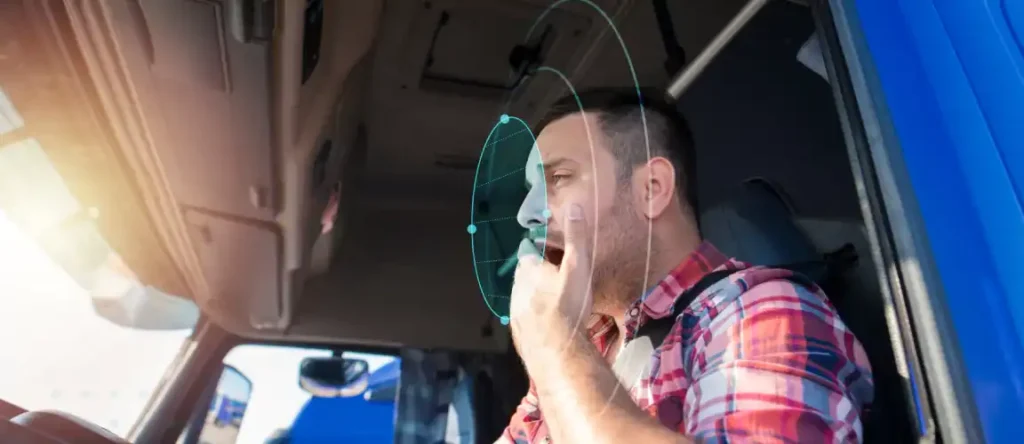Advanced Video Telematics Solution
Utilize cutting-edge AI-driven video technology to safeguard your most valuable assets your vehicle, cargo, and drivers.


Fleetviu > Video Telematics
Why Fleetviu
Keep an Eye on your Fleet and Protect your Business
Unparalleled Fleet Visibility
Planned maintenance, fuel monitoring, driver coaching, and more.
Control Fleet Operations
Manage every crucial aspect of your daily fleet operations with just a click. Keep check on your drivers, their driving assignments, and their geolocation at any time.
Fleet Health
Get diagnostic, mileage, and health reports of all the vehicles in your fleet so that you can worry less about your fleet’s well-being and concentrate more on expanding your business.
Manage Fleet's Fuel Cost
Our commercial GPS fleet tracking can help you reduce a good amount of your fuel expenses. Track driving behavior, reduce idling time and cut down on fuel related costs.
Mobile Phone Usage
Remind drivers to put down their phones while driving
FEATURES THAT HELP YOU EXCEL
Enhanced Fleet Safety and Efficiency
Full-Stack Offering With Best-In-Class Value

ADAS alerts for on-road events, such as forward collisions, tailgating, & more
DMS alerts for in-cab incidents, such as distracted or drowsy driving, & more
Driver Scorecards to Rank, Reward, & Coach Drivers
6 months of Cloud Storage for DVR & Incident Video
3-year Industry-Best Warranty for Dashcams
100 mins Live Streaming per Vehicle per Month
What Our Happy Customers Say




Resources
Explore the Fleetviu News
Frequently Asked Questions
What is Video Telematics?
Video telematics is one of the latest in the series of innovations in-vehicle telematics technology. The video telematics solutions combine the functionality of telematics solutions with the video equipment for capturing the data in the form of video footage. Added to this are the capabilities of the Artificial Intelligence solutions, which provide holistic insights into the movement of vehicles.
What is ADAS and why is it needed?
Advanced driver-assistance systems or ADAS levels are technical features that are intended to improve vehicle safety. When appropriately designed, these systems, also known as ADAS, leverage an interaction to increase the driver’s capacity to react to road hazards. ADAS levels are various levels of automation available.
With advanced warning and automated systems, these systems improve safety and response time to possible threats. Some of these systems come standard on specific vehicles, while aftermarket features and even full systems can be added later to customize the vehicle to the driver.
Why do I need DMS?
Fleet and driver safety is a common concern for all fleet managers. Be it any industry, safety is a top priority. Due to the nature of their job, fleet drivers are expected to drive for long distances and hours. Most heavy-duty vehicles are only allowed to commute during the night as per legal compliances. This largely contributes to commercial vehicle road accidents. These accidents not only affect your fleet of vehicles and drivers but also endanger the lives of other people on the road. This common occurrence has given rise to the need for a Driver Management System (DMS).
What is G-Sensor and how does it work in a dashcam?
G sensor, gravity sensor, or accelerometer on a dashcam is used to measure accurate acceleration, also known as G-Force. In other words, an abrupt change in direction will be detected by the dash camera.
When an impact is detected by the built-in g-sensor, the digital rearview mirror will immediately lock the current file and store it in a standalone file for you to examine and download later. Based on the driving conditions, the responsiveness level can be set to “High,” “Medium,” or “Low” in the settings.
For example, if you decide to go off-roading, you might want to set the sensitivity to low to avoid freezing too many files. You can see the incident footage directly on the digital screen via video playback, or you can take out the SD card and upload the file to your laptop or desktop.

